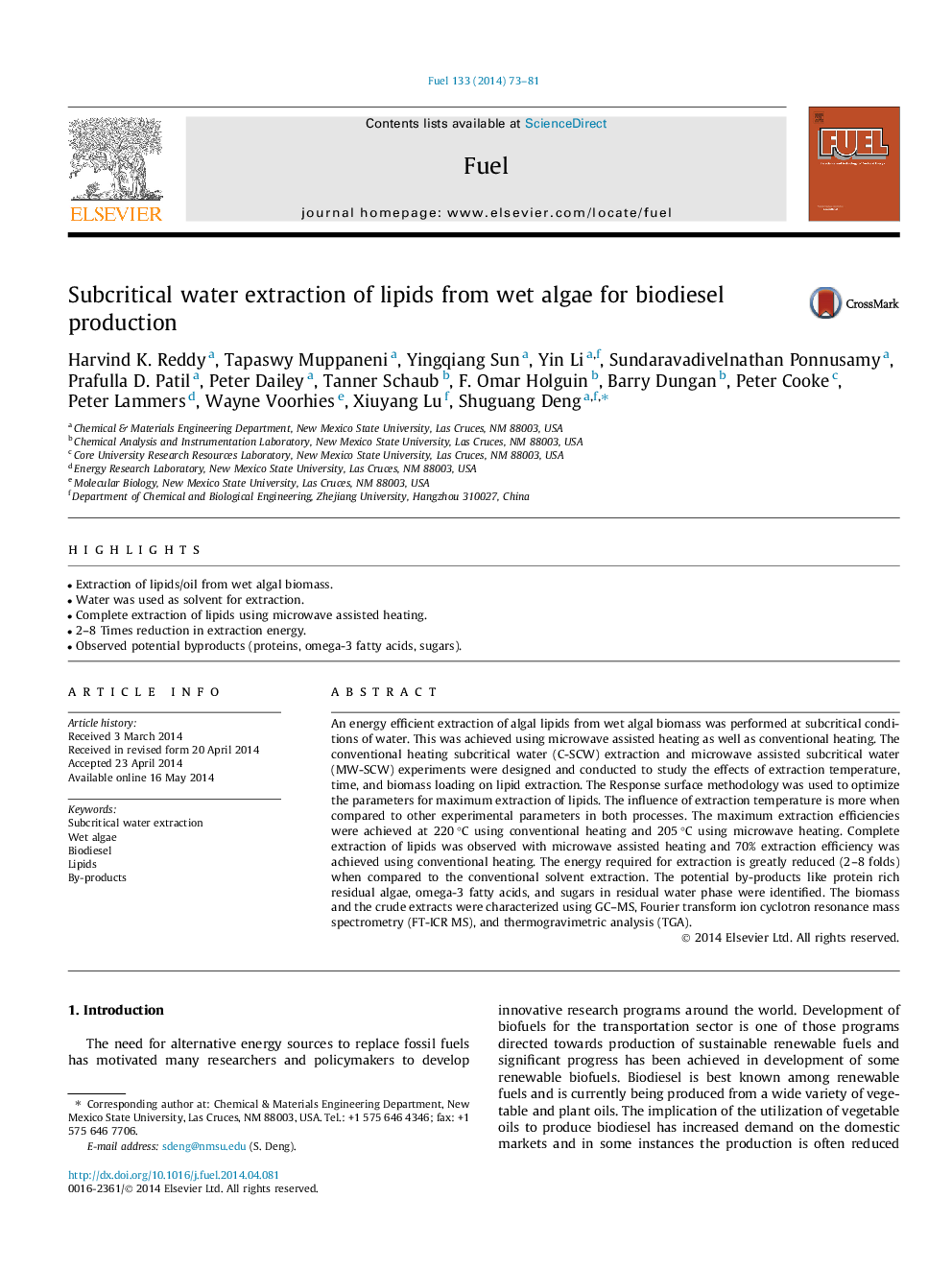| Article ID | Journal | Published Year | Pages | File Type |
|---|---|---|---|---|
| 6637079 | Fuel | 2014 | 9 Pages |
Abstract
An energy efficient extraction of algal lipids from wet algal biomass was performed at subcritical conditions of water. This was achieved using microwave assisted heating as well as conventional heating. The conventional heating subcritical water (C-SCW) extraction and microwave assisted subcritical water (MW-SCW) experiments were designed and conducted to study the effects of extraction temperature, time, and biomass loading on lipid extraction. The Response surface methodology was used to optimize the parameters for maximum extraction of lipids. The influence of extraction temperature is more when compared to other experimental parameters in both processes. The maximum extraction efficiencies were achieved at 220 °C using conventional heating and 205 °C using microwave heating. Complete extraction of lipids was observed with microwave assisted heating and 70% extraction efficiency was achieved using conventional heating. The energy required for extraction is greatly reduced (2-8 folds) when compared to the conventional solvent extraction. The potential by-products like protein rich residual algae, omega-3 fatty acids, and sugars in residual water phase were identified. The biomass and the crude extracts were characterized using GC-MS, Fourier transform ion cyclotron resonance mass spectrometry (FT-ICR MS), and thermogravimetric analysis (TGA).
Related Topics
Physical Sciences and Engineering
Chemical Engineering
Chemical Engineering (General)
Authors
Harvind K. Reddy, Tapaswy Muppaneni, Yingqiang Sun, Yin Li, Sundaravadivelnathan Ponnusamy, Prafulla D. Patil, Peter Dailey, Tanner Schaub, F. Omar Holguin, Barry Dungan, Peter Cooke, Peter Lammers, Wayne Voorhies, Xiuyang Lu, Shuguang Deng,
